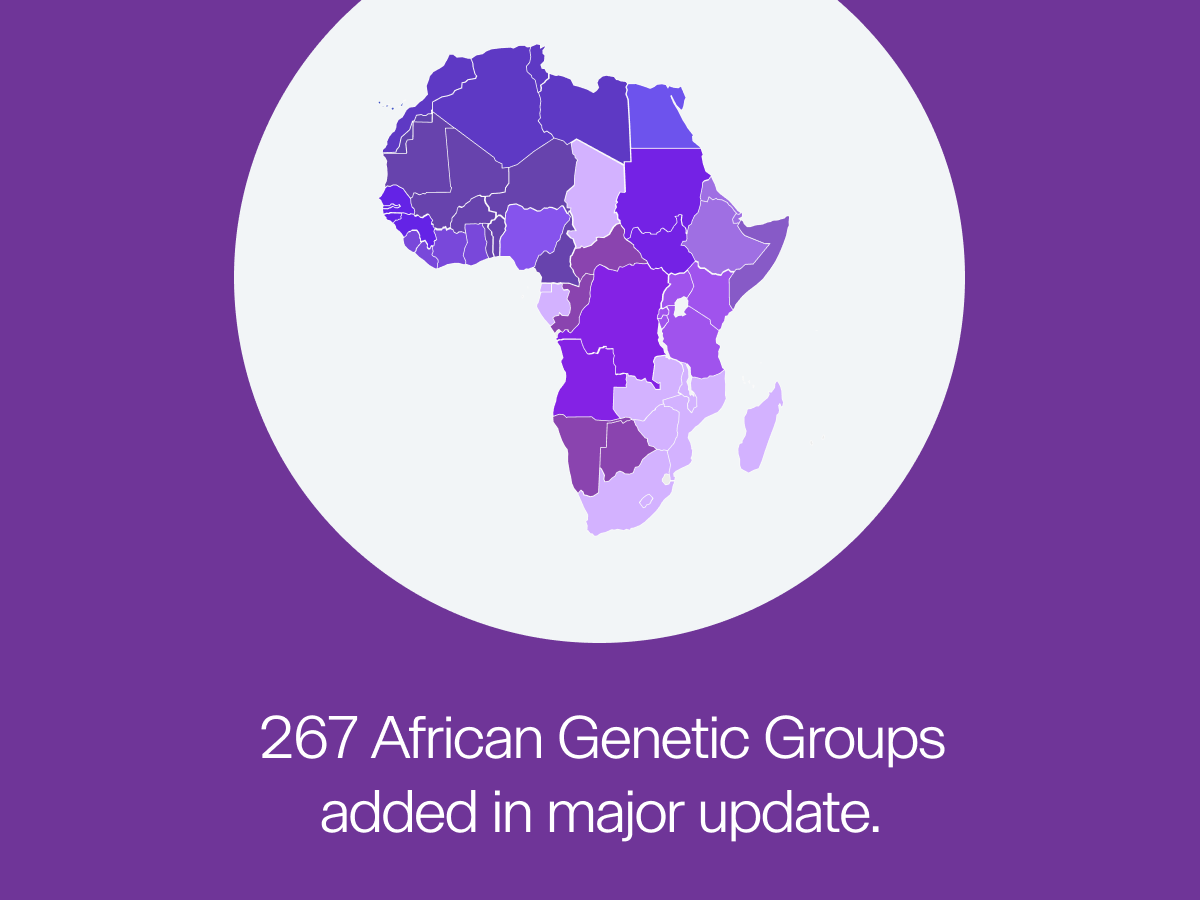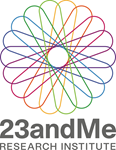23andMe Research Institute Helps Reconnect African Diaspora to Their Roots with Release of 250+ High-Resolution African Genetic Groups
Major Scientific Expansion Provides the Most Detailed Look at African Ancestry on the Market, Helping to Bypass Historical 'Brick Walls' for Individuals with African Heritage
PALO ALTO, Calif., Nov. 20, 2025 (GLOBE NEWSWIRE) -- For millions of Americans in the African diaspora, genealogical ties and records were severed by the transatlantic slave trade, creating a 'brick wall' for those seeking to know their full heritage. Today, 23andMe Research Institute announced a landmark expansion of its genetic ancestry reports and features, unveiling more than 250 high-resolution Genetic Groups across Africa. This significant update provides members with African heritage the most detailed and scientifically rigorous look at their roots currently available on the market, further establishing 23andMe Research Institute as the leader in detailed genetic ancestry.
“This is more than a scientific update; it’s a new chapter in the right to know your own story,” said Steven Micheletti, Ph.D, senior scientist of population genetics at 23andMe Research Institute. “For too long, individuals of African descent have hit a 'brick wall' in traditional genealogy, their paper trails erased by time and history. This update uses our advancements in the field of genetics to help bypass that wall. Seeing your West African ancestry trace to one of 57 specific groups in Nigeria, for example, can be a profound experience. We are incredibly proud to apply our science to help facilitate these powerful discoveries that restore human connection and a piece of lost heritage.”
The update represents an improvement by a factor of 10, moving from 25 African Genetic Groups to more than 250 — significantly improving the accuracy and specificity of ancestry results for the continent. More than 80% of 23andMe's Black and African American customers on the latest V5 genotyping chip will now see matches to one or more of these high-resolution genetic groups, offering a new, more specific starting point for their ancestral journey.
Prior to this expansion, the organization’s ancestry reports and features already held one of the highest ratings from the International Society of Genetic Genealogy for “overall accuracy and sophistication of the biogeographical ancestry analysis.”
Powered by Community-Driven Science
This landmark update was made possible by the willing participation of thousands of research-consented 23andMe Research Institute members with documented ancestry in Africa. Their participation enabled the development of a more inclusive and detailed map of human history for everyone.
The expanded groups, which span Eastern, Middle, Southern, and Western Sub-Saharan Africa, include:
- 57 Nigerian genetic groups
- 44 Angolan & Congolese genetic groups
- 40 Ethiopian & Eritrean genetic groups
- 32 Ghanaian, Liberian & Sierra Leonean genetic groups
- And a total of 28 Somali, 22 Senegambian & Guinean, and 9 Sudanese genetic groups, among others.
While the vast majority of Black and African American 23andMe Research Institute members on the latest genotyping chip will receive one or more of these new groups, there is more work to do. The organization is committed to expanding its reference panels and refining its industry-leading science to bring this level of detail to all members.

23andMe Research Institute Continues to Innovate Genetic Ancestry
The expansion of African Genetic Groups follows closely on the heels of the organization’s major update to Ancestry Composition.
The Ancestry Composition update provided:
- Unmatched granularity in ancestry percentages with 33 new populations in Europe and 6 new populations in the Americas. With these two updates, there are now a total of more than 4,500 populations for members to explore.
- The platform’s algorithm was updated to eliminate “Broadly” and “Unassigned” categories in the default results view.
- A new state-of-the-art DNA phasing pipeline reduces errors and gives a more accurate estimate of genetic ancestry percentages, even if ancestry isn't from Europe or the Americas.
The Ancestry Composition update (Version Seven) was particularly focused on improving two major metrics: precision and recall. Precision confirms how often a piece of DNA is correctly predicted from a specific population. Recall confirms how much DNA from a specific population is correctly identified. Working to maximize both precision and recall is critical to making Ancestry Composition and other ancestry features as accurate as possible.
The update improved the underlying science behind member reports and features including, Ancestry Composition, Ancestry Timeline, Parental Inheritance, and DNA Painting, among others, ensuring 23andMe Research Institute continues to deliver the most precise and reliable ancestry results in the industry.
About 23andMe Research Institute
23andMe Research Institute is a nonprofit medical research organization that enables people everywhere to access their genetic information, learn about themselves and participate in the world's largest crowdsourced research initiative. The Institute aims to be the world's most significant contributor to scientific advancement, uniting people with the common goal of improving health and deepening our understanding of DNA — the code of life.
Media Contact:
press@23andMe.com
Catherine Afarian
23andMe Research Institute
408.656.8872
catherine.afarian@23andme.com
A photo accompanying this announcement is available at https://www.globenewswire.com/NewsRoom/AttachmentNg/d399aa86-54bf-4897-85d9-85334b40b37c

Legal Disclaimer:
EIN Presswire provides this news content "as is" without warranty of any kind. We do not accept any responsibility or liability for the accuracy, content, images, videos, licenses, completeness, legality, or reliability of the information contained in this article. If you have any complaints or copyright issues related to this article, kindly contact the author above.


